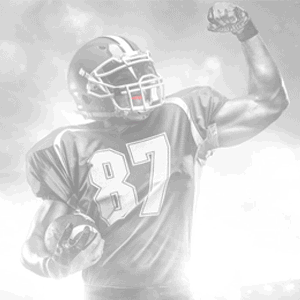Case Study Of Change: What To Expect When You Make Major Changes

Every coach wants to be the next Bill Walsh — a winner, sure, but more importantly an innovator who doesn’t just play by their own rules, but disrupts the status quo and changes the way the game is played.
This is most evident in Philadelphia Eagles’ coach Chip Kelly. From introducing a new offensive philosophy to utilizing groundbreaking dietary and training routines, Kelly has made a variety of significant changes that buck the traditional NFL methods, and many in the NFL disagree with Kelly’s way of doing things.
Change is tough, but oftentimes necessary to achieve success. Let’s use Chip Kelly’s Philadelphia Eagles as a case study to see what you should expect by making major changes and how you should go about shaking up the system:
1. Addressing Problems Or Making Waves?
Change is scary for most people, and in order to be embraced, changes need to be made for the right reasons.
The Eagles were coming off of a 4-12 season and a decade and a half of running the same system. Shaking things up was the only logical move. Enter Chip Kelly.
As a coach, if you are changing something — like, say, your defensive philosophy or offensive system — you need to make sure that you do so wanting to make it better, and aren’t just making changes for the sake of change. Even worse, don’t change something solely to put your own mark on it.
It’s easy to lose the respect of your athletes, fellow coaches or the fan/parent community by making large system-wide changes without providing insight into why you want to try something so radically different. Without a clear purpose, it’s difficult to get the buy-in you need to make it successful.
2. Change Takes Time
As the old saying goes, “Rome wasn’t built in a day.” Radical change is hard, so just know that it takes time to build things and results won’t be seen overnight when you are changing several pieces of the puzzle at once.
In the first two seasons of Kelly’s tenure with the club, the team saw some roster turnover, but few wholesale changes from the Andy Reid-era Eagles. And the team won 20 games over those two years.
This season, Kelly seized full roster control and jettisoned the remaining holdovers from the previous regime, making drastic changes throughout the roster, most notably on offense. And so far, the growing pains are obvious.
In order to continue forward progress, it’s a good idea to hold onto some components that you know work — in the case of the Eagles, guard Evan Mathis is a perfect example — until you have a solid back up plan in place or a replacement lined up. A complete overhaul has the ability to be more harmful than helpful, particularly when expectations are high.
3. If The Cogs Don’t Fit The Machine, You May Need To Change The Machine
Sometimes players fit a system; sometimes you must adapt your system to fit your players.
Chip Kelly went out this offseason and acquired players he deemed “fit for his system.” That included quarterback Sam Bradford and running back DeMarco Murray, two high-priced skill position players who played in a similar system together at the University of Oklahoma. However, after seven games, neither player looks comfortable playing in a high-paced offense based almost entirely out of the shotgun formation.
There have been many calls for Kelly to switch gears system-wise and employ more of a traditional formation from under center, one that would better fit the pieces he has. While he has gone to the look a handful of times over the previous few weeks, Kelly is very hesitant to reconfigure his system.
Flexibility is key to change. You should never try to force square pegs into round holes.
4. Don’t Be Quick To Judge
Is it easy to sit back and say that Chip Kelly’s offseason — and system — looks like an utter failure? Sure. But it’s also not fair.
One month — heck even one season — is too small of a sample size to declare anyone a success or failure. It’s unfair to claim that Chip is a failure, as we haven’t gotten the full story yet. Maybe the Eagles find a groove on offense and make a second half run to a division title. Maybe the offensive line is too banged up and the team is still a year away from competing.
Only time will tell if the radical changes Kelly made will fail or succeed. But it’s too early to bail. Year one may be a flop, but year two could be special.
Sometimes you just need to work out the kinks and make small adjustments here and there to get the changes you desire.
Change is hard, but almost always necessary to achieve success. Make sure you have a purpose, stay the course and ignore the detractors.




 Every coach wants to be the next Bill Walsh — a winner, sure, but more importantly an innovator who doesn’t just play by their own rules, but disrupts the status quo and changes the way the game is played.
Every coach wants to be the next Bill Walsh — a winner, sure, but more importantly an innovator who doesn’t just play by their own rules, but disrupts the status quo and changes the way the game is played.
